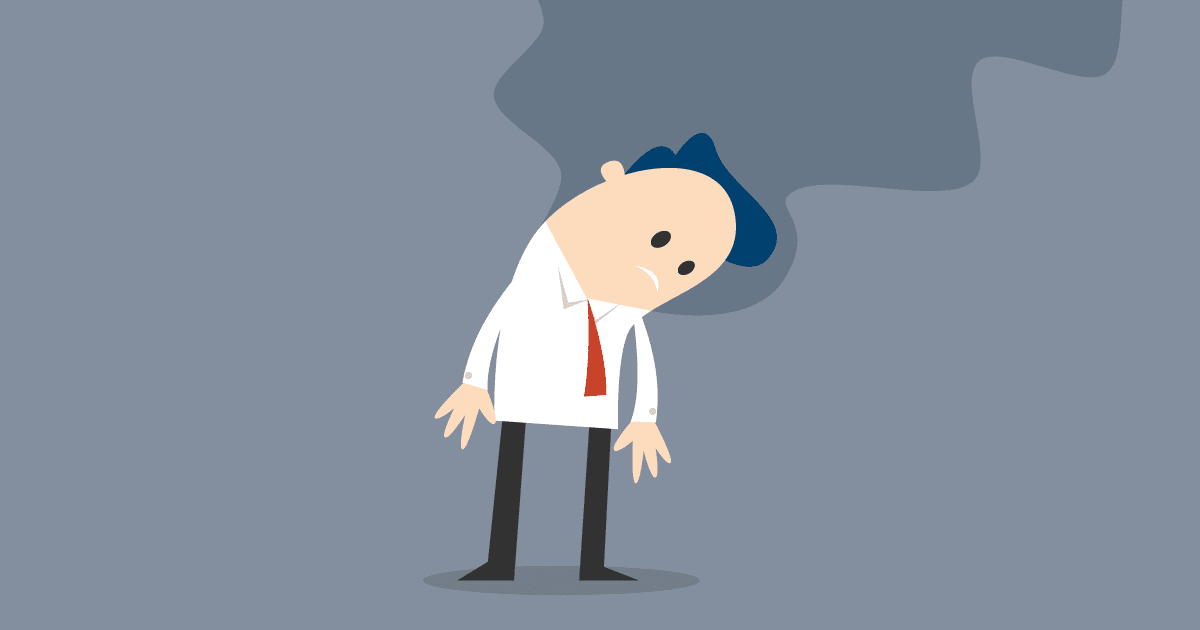Knowing how to avoid burnout and understanding how to recover is essential when working in the fast-moving world of Software Development and QA Testing.
The origin of the word ‘burnout’ comes from the aviation business, where it would refer to a rocket or jet engine that shuts off following the complete exhaustion of its fuel supply. This analogy is a perfect fit for situations you might find yourself in when you’ve worked yourself too hard over too long a period, been under a lot of stress, or when you’ve neglected to take enough care of yourself. You then recognize that your work-life-balance is tipped in the wrong direction. To prevent times like this, we all need to know how to avoid burnout.
There are many instances in life when things can become overly stressful, such as moving house, a new job, having a baby, or planning a trip. Certain people find that they can deal with stress reasonably easily, and others might have reliable coping-mechanisms that they use to help them to manage. However, my vantage point comes from working in a design and development environment which can and does exacerbate the symptoms of burnout. I’m writing this because I have experienced it myself and hope to shine some light on what we can do, as designers, QA testers, developers, and managers, to spot the signs within ourselves and in our teams to prevent it from happening.

Burnout is not only feeling the pressure of work; it’s the result of enduring that pressure and absorbing the stress that comes with it. It’s not something that happens overnight, and according to the wellbeing and training organization Calmer, there are five stages to burnout.
- Honeymoon phase – you’re starting a new and exciting project
- Onset of stress – you’re beginning to realize it’s difficult and stressful
- Chronic stress – you’re feeling stressed most of the time
- Burnout – you’re feeling symptoms of emptiness, exhaustion, and self-doubt
- Habitual burnout – where burnout becomes embedded as a part of your life
Burnout Statistics
The design and software development industry is fast-paced, and the work culture often pressures employees to work long hours, overtime, and often, to even take work home with them and show up on the weekends during busy periods.
While it’s difficult to know the full extent of burnout, over 600,000 people in the UK alone suffered from workplace related stress in 2018. So whether you are part of a team and working under a project manager, or flying solo, developing your own software and striving to achieve your own vision, it’s essential to recognize the signs of burnout. Make sure you look after yourself – because you won’t do a good job if you’re running on an empty fuel tank.
My Own Story
Having studied design, I come from a creative background and have worked in several roles that include branding, illustration and user interface design to creating visual concepts for apps and websites. I have worked within software teams for many years and have been involved with the QA testing process.
I helped to startup a tech company some years ago. We were creating something exciting, and it was fascinating to see a team form around me as we planned out the features and objectives of this new software. I found myself becoming very heavily invested in the project, leading a small marketing team, being involved in the ideas and planning of the app itself. Because I felt a bit unsure of my role in the flurry of the startup, I found that it began to take over my life.
Instead of pausing to reflect or approach anyone to discuss my troubles, I plowed on, thinking that if I just worked harder and pushed more, I would break through the other side, and all would be well, but this didn’t work. I found myself feeling completely burned out and empty of any ideas or creativity. Even my passion for the industry and my job was beginning to fade. While I knew I wasn’t alone, and everyone involved in startups goes through their fair share of difficulties, this didn’t help. I felt stuck and helpless. I was stressed and found simple tasks increasingly difficult and anxiety-inducing. I was burned out, and it was affecting my work, my mood, my sleep, and my mental health. Looking back, I now see how I blindly progressed through all the steps of burnout and found myself firmly in step 4. Looking back, I think I was only a couple of months away from lodging even deeper and falling into step 5 – habitual burnout.
How I Overcame My Burnout
This burnout lasted quite a while, and it took an external force to help shake me out of the rut I was deeply lodged in. Finally, I spoke to one of the company directors, and they recognized that something needed to happen, so we worked out a few things relatively quickly. Ours was a very open environment, so I don’t know why it took me so long to approach anybody, but that was part of the problem preventing me from getting back on my feet again. We agreed that I needed to reduce my hours, review my role(s), and add some more structure to my time at the company.
Things are much better now, and I have a far healthier relationship with the work, and feel more focussed. The time I do spend deeply involved in the work is far more valuable as I am not pressuring myself to try to achieve everything or spin the plates that were not my business to spin.
It was a pretty tough time, but I learned a lot from it. Here’s a summary of what worked for me:
Speak to Someone
Often you cannot see the wood for the trees, and struggle to see a way out. Get an objective opinion on the matter, and don’t be afraid to reveal your struggles to your colleagues.
Open up to your friends and family, and don’t be ashamed. I waited too long before admitting that things were getting on top of me before I had the conversation, which made me realize that I could have resolved things a lot sooner than I did.
Don’t Overwork Yourself
I know you probably work in a high-pressure environment, but try to manage expectations. Recognize that there is only so much you can realistically do, and accept that certain activities or tasks may need to be delegated or pushed back.
Reduce your Hours or Take a Break
Don’t worry, the world won’t end! Perhaps you need to take some holiday or arrange flexible working hours with your manager to help give you some headspace. If you’re contracting or freelance, don’t be afraid to say that your workload is getting on top of you and try and work something out with your client. I understand the pressures that come with being self-employed, but you won’t be able to do any work or pay the bills if you’re totally burned out.
Stay Active
I’ve never been a sporty person, but I have found that physical exercise has an incredible mood-lifting quality. Running and martial arts helped me. It sounds counterproductive, that when you feel like your fuel tank is empty, you should physically exert yourself, but I found that the more active I was, the more energy I had, and getting fresh air really cleared my head.
Mindfulness Meditation
Most of us don’t know how to breathe – it sounds crazy, seeing as we do it all day, every day, but there are breathing techniques that help us to breathe ‘properly’ and ensure our brains and bodies are properly oxygenated. By regularly practicing mindfulness in the mornings to clear and calm my thoughts, combined with a focus on my breathing, I found myself feeling more relaxed throughout the day and better able to cope with whatever the day threw at me.
A handy beginner’s guide to mindfulness meditation can be read here.
Shake it up
I think burnout happens when one thing consumes your entire life and takes up a large percentage of your mental space. It would help if you had a distraction. It might feel like the last thing you should do, but consider starting a fun side project that you never intend to finish – anything to focus your mind on something else. Read a new book, start a new hobby; just do something – anything – different to the thing that was getting you stuck in a rut and exhausting your energy.
Summary
There’s a fine line between being busy and feeling the pressure at work and becoming burned out and depressed. It’s essential to spot the signs and take good care of yourself when you feel burnout approaching. Be proactive, and don’t worry about sharing your struggles with your colleagues and managers. Things can, and do, get better.
